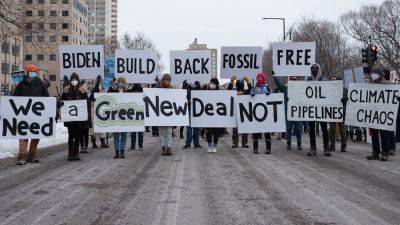Vermont Becomes 1st State To Force Oil Companies Pay For Climate Change Damage
Vermont has become the first state to enact a law requiring fossil fuel companies to pay a share of the damage caused by climate change after the state suffered catastrophic summer flooding and damage from other extreme weather.
Republican Gov. Phil Scott allowed the bill to become law without his signature late Thursday.
He wrote in his message to lawmakers that “taking on ‘Big Oil’ should not be taken lightly” and that he is concerned about the costs and outcomes. He said he worries that if the state fails in this legal challenge “it will set precedent and hamper other states’ ability to recover damages.”
Maryland, Massachusetts and New York are considering similar measures.
Under the legislation, the Vermont state treasurer, in consultation with the Agency of Natural Resources, would provide a report by Jan. 15, 2026, on the total cost to Vermonters and the state from the emission of greenhouse gases from Jan. 1, 1995, to Dec. 31, 2024. The assessment would look at the affects on public health, natural resources, agriculture, economic development, housing and other areas. The state would use federal data to determine the amount of covered greenhouse gas emissions attributed to a fossil fuel company.
It’s a polluter-pays model affecting companies engaged in the trade or business of extracting fossil fuel or refining crude oil attributable to more than 1 billion metric tons of greenhouse gas emissions during the time period. The funds could be used by the state for such things as upgrading stormwater drainage systems; upgrading roads, bridges and railroads; relocating, elevating or retrofitting sewage treatment plants; and making energy efficient weatherization upgrades to public and private buildings.
“For too long,







